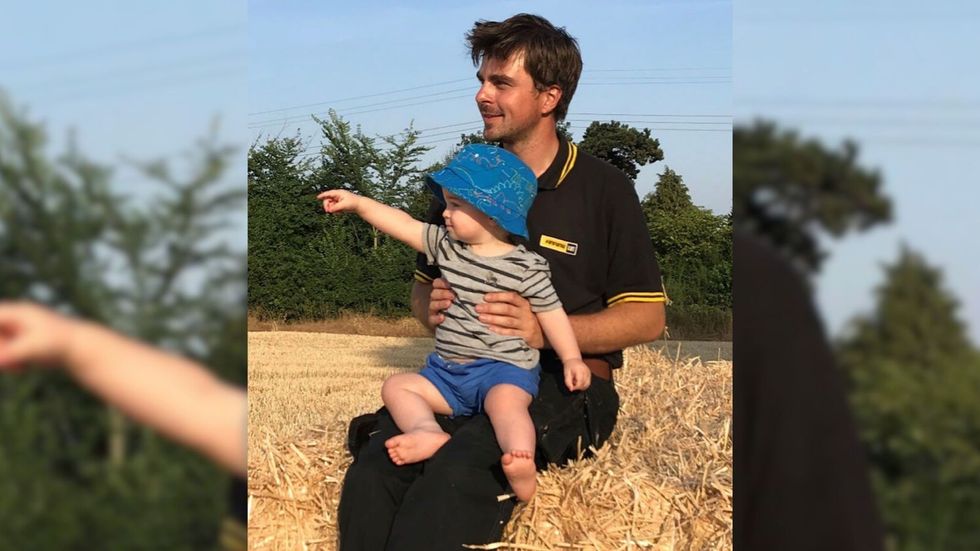A healthy 27-year-old died following a rare reaction to the AstraZeneca vaccine after the NHS wrongly gave him the jab, a report has revealed
PA
A coroner previously confirmed the man died from bleeding on the brain - a direct result of his body’s reaction to the jab
Don't Miss
Most Read
Trending on GB News
A healthy 27-year-old died following a rare reaction to the AstraZeneca vaccine after the NHS wrongly gave him the jab, a report has revealed.
Jack Last passed away on April 20, 2021, following a series of "system shortcomings, human error and tragic unfortunate timing".
A independent report into his death found that the engineer, from Stowmarket, had a rare side effect to the AstraZeneca vaccine.
According to the review, he was wrongly given the Covid vaccination and there were failures in his care after he was admitted to hospital suffering an adverse reaction.

Jack Last suffered a rare side effect to the AstraZeneca vaccine
PAA coroner previously confirmed Last died from bleeding on the brain - a direct result of his body’s reaction to the jab.
The independent investigation found that he was given the jab at the end of March 2021 because the system used by the NHS incorrectly suggested he was living with his parents - with one wrongly classed as being in a high-risk group.
According to the system, his parent’s clinical condition was classified as lung disease which was "erroneous" and therefore, Last "should not have been invited for vaccination".
The report said: "A review of the GP records, by the clinical expert adviser identified that there were no further reviews or active treatment of COPD after 2016, they further concluded there was no firm evidence of COPD and the parents chronic cough was thought to be more asthma related by the respiratory consultant."
When Last was invited for the vaccine, clinical commissioning groups (CCGs) "were struggling to use their remaining AZ vaccine stock" and there had been a national requirement to limit wastage.
After receiving his the vaccination on March 30, 2021, the following day NHS England posted updated guidance which stated that "household contacts" of people with "severe immunosuppression" had to show "documentary evidence of their address."
LATEST DEVELOPMENTS:
If these checks had been required when Last was vaccinated, he would "have been seen to be ineligible", the report said.
Around a week later, official advice recommended that under-30s should be offered an alternative vaccine amid concerns about blood clots.
In addition, while Last attended the West Suffolk NHS Foundation Trust, blood tests identified "abnormal levels" and the "indicators had been identified as warning signs [red flags]" for vaccine-induced immune thrombocytopenia and thrombosis (VITT).
The review said that "despite Jack’s grossly abnormal blood test results… the on-call consultant showed little clinical suspicion about the potential underlying cause of Jack’s condition".
There was a "lack of urgency" in getting Last a scan while a radiologist mistakenly said that there were "no acute abnormalities", which was later "found to be inaccurate".

A independent report into his death found that the engineer, from Stowmarket, had a rare side effect to the AstraZeneca vaccine
GettyThe report found that a consultant who treated Last "did not specifically address" some of his test results.
"This was therefore a missed opportunity to start Jack on the only treatment which might have had the potential to modify progression of the disease", the review stated.
"Although it is not clear if this delay would have changed the outcome for Jack, this was still a missed opportunity to have started the medication regime for VITT as early as possible".
Dr Andrew Kelso, the medical director of the Suffolk and North East Essex ICB, said: "Our thoughts remain with the family of Jack and have been throughout this very tragic case.
"On behalf of all system partners, we are truly sorry for what has happened and for the loss, heartbreak and distress they must be experiencing.
"Due to the seriousness of what happened, we immediately commissioned an independent review to fully understand what led to this tragedy and to identify learning. We also wanted to give the family all the answers to their questions.
"This independent review allowed the system to look at the incident from beginning to end, without the restrictions of organisational boundaries and without prejudice."








